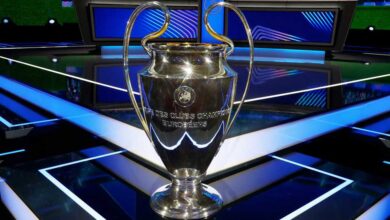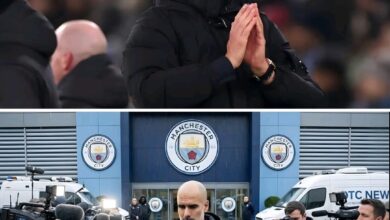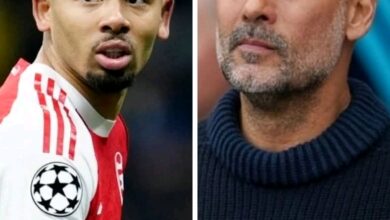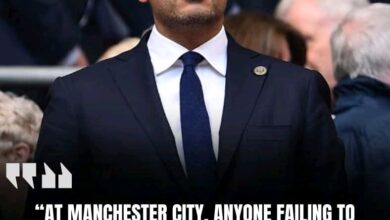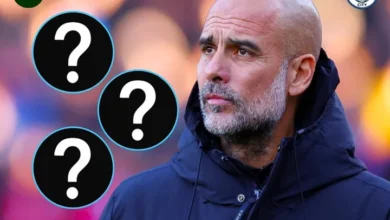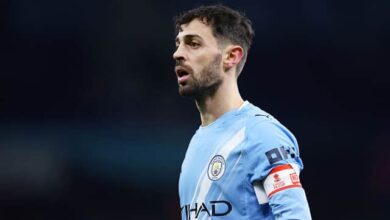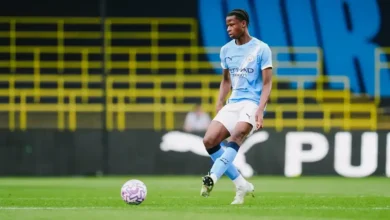Arsenal could be about to do the ‘deal of the century’ as they close in on bargain signing
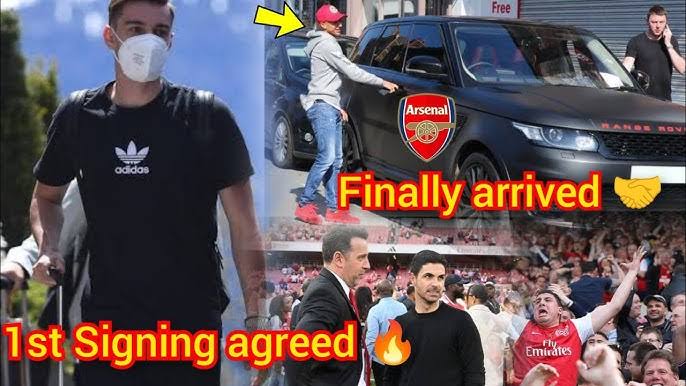
As the summer transfer window progresses, Arsenal find themselves in a unique position. While their Premier League rivals Liverpool and Manchester City have already begun their summer shopping sprees, making strategic acquisitions to strengthen their squads, the Gunners have maintained a more measured approach. This calculated restraint has not gone unnoticed by fans and pundits alike, who eagerly await Mikel Arteta’s first move in what promises to be a crucial transfer window for the North London club.
The anticipation surrounding Arsenal’s transfer activity has reached fever pitch, particularly as rumors circulate about potential signings that could transform their squad dynamics. Among the most intriguing possibilities is the reported interest in Kepa Arrizabalaga, the Spanish goalkeeper whose career has been marked by both spectacular highs and disappointing lows. What makes this potential acquisition particularly fascinating is not just the player’s pedigree, but the remarkably low fee being discussed – a mere £5 million for a goalkeeper who once commanded the highest transfer fee in football history for his position.
Arsenal’s goalkeeping situation has been a source of concern and discussion throughout the previous season. The loan spell of Neto, brought in as additional cover, failed to meet expectations and highlighted the urgent need for reliable backup to Aaron Ramsdale. The Portuguese goalkeeper’s brief stint at the Emirates Stadium served as a stark reminder that not all temporary solutions work out as planned, leaving Arsenal with a glaring need to address their goalkeeping depth.
The importance of having a dependable second-choice goalkeeper cannot be overstated in modern football. With the demanding schedule of Premier League football, coupled with domestic cup competitions and European commitments, clubs require two goalkeepers who can step in at any moment and perform at the highest level. Arsenal’s experience with Neto demonstrated the risks associated with inadequate backup options, making the search for a suitable replacement a priority for the upcoming season.
This context makes the potential signing of Kepa Arrizabalaga all the more significant. Despite his well-documented struggles at Chelsea, the Spanish international brings a wealth of experience and technical ability that could prove invaluable as Arsenal’s second-choice option. The fact that he could be available for such a modest fee adds another layer of intrigue to this potential transfer.
The story of Kepa Arrizabalaga’s career trajectory reads like a cautionary tale about the volatile nature of football transfers and player valuations. In 2018, Chelsea paid Athletic Bilbao £72 million to secure the services of the young Spanish goalkeeper, shattering the world record transfer fee for a goalkeeper. At the time, the move was seen as a statement of intent from Chelsea, who were investing heavily in a player they believed would be their long-term solution between the posts.
The record-breaking fee reflected not only Kepa’s potential but also the inflated nature of the modern transfer market. Chelsea’s willingness to pay such an astronomical sum demonstrated their confidence in the goalkeeper’s ability to justify the investment over many years. The Spanish international was viewed as one of the most promising young goalkeepers in world football, with excellent distribution skills and shot-stopping ability that had caught the attention of Europe’s elite clubs.
However, the reality of Kepa’s time at Stamford Bridge has been far more complicated than anyone could have anticipated. Despite showing flashes of brilliance, his performances have been inconsistent, leading to periods where he found himself out of favor with various Chelsea managers. The pressure of being the world’s most expensive goalkeeper has undoubtedly weighed heavily on his shoulders, contributing to a series of high-profile mistakes that have defined much of his Chelsea career.
The transformation from a £72 million asset to a potential £5 million signing represents one of the most dramatic value depreciations in football history. This staggering £67 million drop in market value over just a few years illustrates the ruthless nature of football economics and how quickly perceptions can change. For Arsenal, however, this dramatic devaluation presents an unprecedented opportunity to acquire a goalkeeper of proven quality at a fraction of his original cost.
Adrian Clarke, a respected football pundit and former Arsenal player, has been particularly vocal about the potential value of bringing Kepa to the Emirates Stadium. Speaking on Inside Gooners, Clarke expressed his enthusiasm for the deal, describing it as potentially the “deal of the century” given the modest £5 million fee being discussed. His assessment reflects a broader sentiment within football circles that this could represent extraordinary value for Arsenal.
Clarke’s endorsement carries significant weight, given his deep understanding of both Arsenal’s needs and the modern goalkeeper market. His analysis suggests that while Kepa may have struggled as Chelsea’s first-choice goalkeeper, he could thrive in a different environment with reduced pressure and clear expectations. The role of a second-choice goalkeeper requires different qualities than being the undisputed number one, and Kepa’s experience and technical ability could make him ideally suited for this position.
The pundit’s characterization of this as a potential “deal of the century” reflects the extraordinary value proposition on offer. When considering that Arsenal could acquire a goalkeeper with Champions League experience, international pedigree, and proven Premier League knowledge for just £5 million, the financial logic becomes compelling. This fee represents less than many clubs spend on promising youngsters or squad players, making it a relatively risk-free investment with significant upside potential.
Furthermore, Clarke’s analysis highlights how this signing could address multiple needs simultaneously. Not only would Arsenal gain a competent backup goalkeeper, but they would also add depth and experience to their squad without compromising their budget for other priority positions. This strategic approach to squad building reflects the kind of smart business that could give Arsenal a competitive advantage in the transfer market.
To fully appreciate the magnitude of Kepa’s potential value drop, it’s essential to examine this situation within the broader context of football’s most significant transfer fee reductions. The sport has witnessed several high-profile cases where players’ market values have plummeted dramatically between transfers, often due to poor performances, injury concerns, or changing circumstances.
Neymar’s transfer trajectory provides the most extreme example of value depreciation in football history. The Brazilian superstar’s record-breaking £198 million move from Barcelona to Paris Saint-Germain in 2017 was followed by his £78 million transfer to Al-Hilal, representing a staggering £120 million loss in market value. This dramatic reduction reflects not only Neymar’s injury problems and controversies but also the changing dynamics of the Saudi Arabian league and its impact on traditional transfer valuations.
Cristiano Ronaldo’s career also illustrates how even the greatest players can experience significant value drops. His £100 million transfer to Juventus was followed by a £12 million move to Manchester United, resulting in an £88 million depreciation. While age was clearly a factor in this reduction, it demonstrates how quickly market values can shift even for legendary players.
Antoine Griezmann’s story with Barcelona represents another cautionary tale about inflated transfer fees and subsequent value drops. The French forward’s £107 million move to Barcelona was followed by his £34 million return to Atletico Madrid, representing a £73 million loss for the Catalan club. This case highlights how players can struggle to adapt to new environments and systems, leading to dramatic value reductions.
Within this context, Kepa’s potential £67 million value drop, while significant, is not unprecedented in modern football. However, what makes his situation unique is that he would become the goalkeeper with the highest value drop in football history, a dubious distinction that nevertheless presents an opportunity for Arsenal to capitalize on market inefficiencies.
Arsenal’s potential pursuit of Kepa represents a broader strategic approach to squad building that has become increasingly important in modern football. The concept of identifying undervalued players who can contribute significantly to squad depth without requiring massive financial commitments has become a hallmark of successful clubs across Europe. This strategy allows teams to strengthen their squads while maintaining financial flexibility for bigger signings in priority positions.
The low-risk nature of this potential signing cannot be overstated. At £5 million, Arsenal would be investing roughly the same amount that many Premier League clubs spend on promising academy players or loan fees for established stars. If Kepa fails to meet expectations, the financial impact would be minimal, and the club could easily move him on without significant losses. Conversely, if he rediscovers his form and confidence, Arsenal could have secured one of the bargains of the transfer window.
This approach also reflects a maturing transfer strategy from Arsenal, who have historically been criticized for overpaying for players or making panic purchases late in transfer windows. The potential Kepa signing suggests a more calculated approach, where the club is willing to take calculated risks on undervalued players rather than chasing expensive targets who may not represent good value.
The strategic timing of this potential move is also noteworthy. By targeting Kepa now, when his stock is at its lowest, Arsenal could be positioning themselves to benefit from any upturn in his fortunes. Football history is littered with examples of players who have revived their careers after difficult periods, and Kepa’s technical ability suggests he has the tools to be successful in the right environment.
Despite his struggles at Chelsea, Kepa possesses several qualities that could make him an excellent fit for Arsenal’s system and philosophy. His distribution skills, in particular, align well with Mikel Arteta’s preference for goalkeepers who can contribute to build-up play. The Spanish goalkeeper’s ability to play out from the back with both feet could be particularly valuable in Arsenal’s possession-based system.
Kepa’s international experience with Spain also adds another dimension to his potential value. Having represented his country at various levels and gained experience in high-pressure international tournaments, he brings a level of mental strength and composure that could prove invaluable in crucial moments. This experience could be particularly beneficial in cup competitions or high-stakes league matches where mental fortitude is as important as technical ability.
The goalkeeper’s age profile also works in Arsenal’s favor. At 30 years old, Kepa is entering what should be his prime years as a goalkeeper, with the experience to handle pressure situations but still young enough to provide several years of service. This age sweet spot makes him an ideal candidate for a second-choice role, where consistency and reliability are more important than long-term development potential.
Furthermore, Kepa’s familiarity with the Premier League eliminates many of the adaptation concerns that come with signing players from other leagues. He understands the pace, physicality, and tactical demands of English football, which could allow him to contribute immediately if called upon. This Premier League experience is particularly valuable for a backup goalkeeper who may be asked to step in at crucial moments
One of the most compelling aspects of Kepa’s potential move to Arsenal is the psychological benefit of a fresh start. The intense scrutiny and pressure he faced at Chelsea, exacerbated by his record transfer fee, created an environment where every mistake was magnified and analyzed. This psychological burden may have contributed to some of his inconsistent performances and confidence issues.
At Arsenal, Kepa would have the opportunity to rebuild his reputation without the weight of being the world’s most expensive goalkeeper. As a second-choice option, he would face less pressure and scrutiny, potentially allowing his natural ability to shine through. Many players have benefited from such changes of environment, rediscovering their form when freed from the psychological constraints of their previous situations.
The role of backup goalkeeper also comes with different expectations and pressures. Rather than being expected to be the undisputed number one, Kepa would be competing for opportunities and looking to prove himself when chances arise. This dynamic could reignite his motivation and hunger to succeed, qualities that may have been dampened by his difficult experiences at Chelsea.
Mikel Arteta’s man-management skills could also play a crucial role in Kepa’s potential renaissance. The Arsenal manager has shown an ability to work with players who have faced challenges, helping them rediscover their confidence and form. His experience as a former player and understanding of the psychological aspects of professional football could be exactly what Kepa needs to reignite his career.
From a financial perspective, the potential Kepa signing represents smart business that could have implications beyond just the goalkeeper position. By securing a quality backup goalkeeper for such a modest fee, Arsenal would free up significant resources to invest in other areas of the squad that may require more substantial investment.
The £5 million fee represents exceptional value when compared to the current goalkeeper market. Most Premier League-quality goalkeepers command fees well in excess of this amount, particularly those with Kepa’s experience and pedigree. This cost efficiency could allow Arsenal to allocate more resources to other priority positions, such as central midfield or attacking areas where they may need to make more expensive signings.
The wage implications of signing Kepa also need to be considered, though reports suggest he would be willing to take a significant pay cut to secure regular opportunities. This flexibility regarding personal terms makes the deal even more attractive from Arsenal’s perspective, as they could secure an experienced goalkeeper without dramatically impacting their wage structure.
The potential signing also provides Arsenal with flexibility in their long-term planning. With a reliable backup goalkeeper secured at minimal cost, the club could take more time to identify and pursue their preferred long-term goalkeeping solution. This could prevent them from making hasty decisions or overpaying for alternatives in future transfer windows
The potential signing of Kepa Arrizabalaga represents exactly the kind of calculated risk that modern football clubs should be willing to take. While his time at Chelsea may not have met expectations, the combination of his technical ability, experience, and the remarkably low transfer fee creates a compelling proposition for Arsenal.
Adrian Clarke’s description of this as potentially the “deal of the century” may seem hyperbolic, but the underlying logic is sound. Arsenal would be acquiring a goalkeeper with proven quality, international experience, and Premier League knowledge for a fraction of his original cost. Even if Kepa only fulfills his role as a competent backup, the signing would represent good value. If he manages to rediscover his best form, it could prove to be one of the smartest pieces of business in recent years.
The broader implications of this potential signing extend beyond just filling a squad position. It demonstrates Arsenal’s evolving approach to the transfer market, showing a willingness to identify and capitalize on market inefficiencies rather than simply pursuing the most expensive or high-profile options. This strategic maturity could serve them well as they continue to build a squad capable of competing at the highest level.
As the summer transfer window progresses, Arsenal fans will be watching closely to see if this potential deal comes to fruition. If it does, they may look back on the signing of Kepa Arrizabalaga as the moment when their club demonstrated that smart business and strategic thinking can be just as valuable as big-money signings in building a successful squad.
The football world has seen many examples of players who have revived their careers after difficult periods, and Kepa’s potential move to Arsenal could provide him with exactly the environment he needs to rediscover his best form. For Arsenal, it represents an opportunity to strengthen their squad significantly while maintaining financial flexibility for other targets. In an era of inflated transfer fees and astronomical wages, such opportunities are rare and should be seized when they present themselves.
Whether this potential signing truly proves to be the “deal of the century” remains to be seen, but the fundamentals suggest that Arsenal would be making a smart, low-risk investment with significant upside potential. In the high-stakes world of Premier League football, such opportunities don’t come along often, making this a deal that could define Arsenal’s transfer strategy for years to come.






